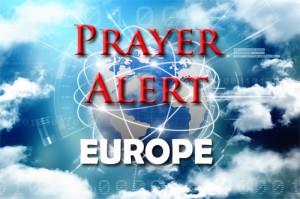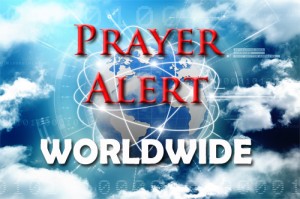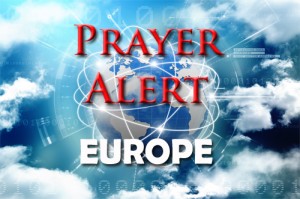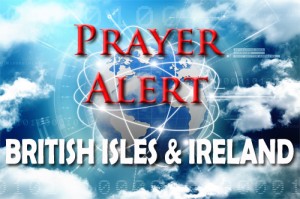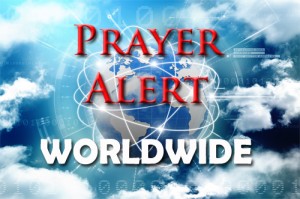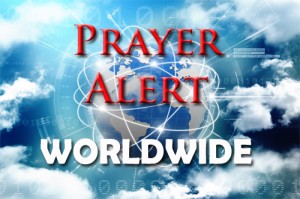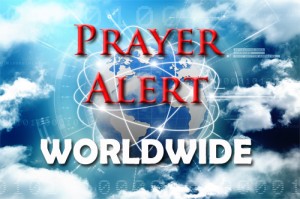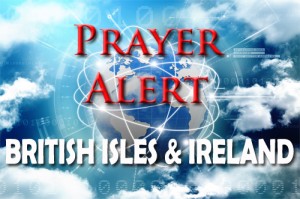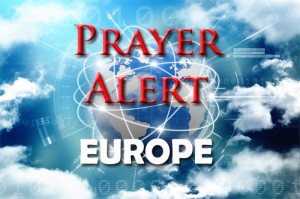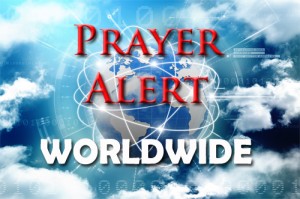Displaying items by tag: Corruption
Switzerland: Congo aid conference
The Democratic Republic of Congo (DRC) boycotted a UN donor conference in Geneva that was seeking to raise £1.2bn for the country. Over 13 million Congolese need humanitarian aid. It is a catastrophic humanitarian crisis. Aid agencies say 4.5 million people have been forced from their homes by violence, hunger and instability. Tens of thousands of Congolese have sought refuge in western Uganda. DRC is rich in mineral and other resources, but is affected by armed conflicts, corruption and a political crisis. In the past two years, more people have been displaced in DRC than in any other country. Many believe the international community is ignoring the crisis, where two million children are at risk of starvation.
Iraq: legislative elections due 12 May
With the defeat of IS and Kurdish independence ambitions thwarted, many see a positive mood in Iraq. Yet major obstacles of corruption, sectarianism, and nepotism limit Iraq’s capacity to recover from war and destruction. As soon as campaigning began on 14 April for parliamentary elections, people pulled down pictures of fighters killed in combat and replaced the images with their own posters, causing major controversy. The following day a car bomb targeted an election candidate in Kirkuk, killing one and wounding eleven. Iraq elections have typically been accompanied by violence since the removal of Saddam Hussein. 7,000 candidates have registered to stand for 329 parliamentary seats, in the fourth election since 2003. Iraq is the 12th most corrupt country in the world. On 15 April the US defence secretary accused Iran of funnelling money into Iraq to sway election outcomes, calling it part of a broader pattern of destabilising Iranian actions across the Middle East. See also
Hungary: Viktor Orban - ‘The most dangerous man in Europe’
This week, Viktor Orbán was elected for a third consecutive four-year term as Prime-Minister of Hungary. In 1989, he addressed 250,000 people in Budapest calling for free elections and the withdrawal of Soviet troops. He became famous in Hungary and abroad overnight. The right-wing populist now leads Hungary towards the return of ethnic nationalism and deep-rooted corruption. He eliminated constitutional safeguards, successfully reshaped the state in his own image, and is considered to be a potential threat to the EU. He has been described by the European Stability Initiative as the ‘most dangerous man in the European Union’. A Pew Research poll in 2016 ascertained, ‘Hungarians were the most likely to believe ‘refugees would increase terrorism in their country’. Orban pioneered what scholars describe as either ‘half democracy in decline’ or ‘soft autocracy;’ merging crony capitalism with right-wing rhetoric. He flatly rejects accusations of impropriety of the sources of his allies’ enrichment. Opposition speakers in parliament repeatedly complain that he has become not only the most powerful but also the richest millionaire in Hungary.
Brexit vote corruption?
Claims from a Cambridge Analytica (CA) whistle-blower that the Leave campaign won by ‘cheating’ has some people calling for a second vote and others hoping the result can be overturned by Parliament. Our electoral system is under scrutiny, as new evidence shows that both remainers and leavers appear to have done what they could financially to maximise their vote. Researchers now believe it is probable that both sides were up to similar tricks. The controversy over the Brexit vote has drawn British involvement with CA to the attention of Transparency International. If Brexit campaigns end up on the wrong side of the law, pray that they will face the subsequent consequences. But, however we reached Brexit, the referendum result has three likely guarantors: the Conservative backbench, the Labour frontbench, and public opinion. See also article 4 in the World section, about CA.
Global: Cambridge Analytica
Recent revelations about Cambridge Analytica (CA) tactics to influence elections using data from Facebook accounts and its role in UK and US election votes are the tip of an iceberg. CA has been linked to elections in Czech Republic, India, Italy, Kenya, Mexico, Malaysia, Nigeria, and Ukraine. This is a truly worldwide phenomenon. New technologies can be a double-edged sword. Social media has transformed how the public call out the corrupt and demand change. But what happens when the data these tools generate about their users is used as part of a murky process to influence elections? Is this corruption? The now-suspended CEO of CA has said that some emails between the company and its clients automatically self-destruct, leaving no electronic paper trail for investigators looking for election fraud allegations. Also identities of companies working on elections were hidden, presumably through shell companies. ‘No one even knew they were there,’ said another CA executive of an operation in Eastern Europe. See also
Argentina: G20 and state-owned enterprises
Argentina has recently hosted a meeting of the G20 anti-corruption group, with national delegations and international organisations seeking to address the best ways of curtailing corruption and promoting integrity in state-owned enterprises (SOEs). Controlled by national governments, SOEs rank among the largest companies in the world and are often some of the biggest employers in their country. They are central to the daily lives of citizens, providing critical goods and public services in sectors such as transport, utilities, health and telecommunications. When they indulge in corruption and malpractice, citizens feel the impact: trains are delayed, households go without power or water, and the sick are deprived of essential medical treatment. SOEs are particularly vulnerable to corruption because of their closeness to politicians and public officials, and the scale of resources, contracts and operations they control.
Iraq: corruption and elections
Vice-president Nouri al-Maliki wants to regain the premiership he lost in 2014, and many believe he is leveraging his influence over the judicial process to marginalise political rivals ahead of the elections on 12 May. Iraq’s savvy and powerful politicians are using judicial, legislative, and procedural means to disqualify their opponents or break up opposing coalitions, especially after candidate lists were filed on 10 February. Such disqualifications undermine the legitimacy of the Iraqi government in ways that accelerate insurgency and negate the military gains the US has made against IS in Iraq. Meanwhile Islamic leaders slander Christians in mosques, leading to further persecution. Government officials, both national and local, have threatened Christians, ‘encouraging’ them to leave the country. Political parties who hinder pluralism also contribute to the persecution of Christians in the public space. See
Oxfam corruption
In November Prayer Alert drew attention to Oxfam dismissing 22 employees over sexual abuse allegations, and you prayed for all that is hidden to be revealed in its management of overseas networks. See In 2015/16 Oxfam, the fourth biggest fundraiser in the UK, saw £553,479 go missing to fraud and corruption. It is tackling problems of sex assaults and sexual exploitation among its workforce, and a number of investigations into deaths of people driving or struck by its delivery vehicles overseas. Pray that the current scandal will not mar the public’s confidence to give to needy causes, through established charities (during 2016/17 Oxfam provided emergency support for 8.6 million people hit by conflict and natural disaster).
Intercessor Focus: Russian elections
In 2017 anti-Putin rallies attracted thousands in remote regions where people opposed Kremlin-run politics and called for credible opposition to be allowed to stand in elections. Alexei Navalny planned to face President Putin in March’s Presidential election, but was banned after dubious fraud accusations. On 28 January he was freed from a twenty-day jail term for organising anti-Putin protests, but was re-arrested the same day. Thousands protested against government corruption outside the Kremlin and across Russia, calling the election a farce and urging people not to vote. Kremlin-controlled media are not covering the protests. Putin is expected to win, but his main concern is getting enough people voting to make the election appear credible. For INSIGHTS into unethical, corrupt elections due in 2018 click the ‘More’ button.
Venezuela: unprecedented economic and political crisis
Six months ago, 93% of Venezuelans said their income was not sufficient to buy the food they need. 75% reported suffering weight loss, averaging 9 kg. The price of food is fifteen times the minimum wage, and prices continue to rise. The director of a Caracas-based health and nutrition charity said, ‘Malnutrition in Venezuela is a problem of corruption, not a lack of money’. Government price controls and other policies have crippled domestic production, and after the oil price drop caused imports to decrease dramatically, insufficient food is available for the over 30m Venezuelans. Meanwhile President Maduro’s efforts to consolidate power amid a deepening economic and humanitarian crisis have drawn widespread international condemnation. There are severe food and medicine shortages, soaring crime rates, and an increasingly authoritarian executive. 70% of the population is Roman Catholic and 29% percent Protestant. See
